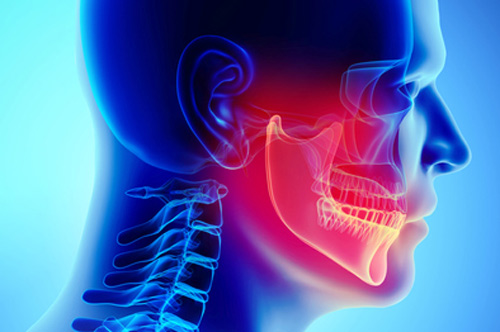How Headaches and Bruxism Are Related
Posted on 4/1/2025 by The Facial Center |
 Have you ever experienced a headache that just wouldn't go away? Or maybe you wake up with a sore jaw and a dull ache in your head? If so, you're not alone. Millions of people suffer from headaches, and many of them are linked to a condition called bruxism. Have you ever experienced a headache that just wouldn't go away? Or maybe you wake up with a sore jaw and a dull ache in your head? If so, you're not alone. Millions of people suffer from headaches, and many of them are linked to a condition called bruxism.
What is Bruxism?
Bruxism is the medical term for teeth grinding or clenching. It's a common condition that affects people of all ages. While some people only grind their teeth occasionally, others do it regularly, even during sleep.
There are two main types of bruxism:
| • |
Awake bruxism: This is when you grind or clench your teeth during the day, often when you're stressed or concentrating. |
| • |
Sleep bruxism: This is when you grind or clench your teeth at night, usually without even realizing it. |
How Bruxism Can Cause Headaches
Bruxism can put a lot of stress on the muscles in your jaw, face, and neck. This can lead to pain and tenderness, as well as headaches.
Here are some of the ways bruxism can cause headaches:
| • |
Muscle tension: The constant grinding and clenching of your teeth can cause your jaw muscles to become tense and sore. This tension can radiate to other muscles in your head and neck, leading to headaches. |
| • |
Joint pain: The temporomandibular joint (TMJ) connects your jawbone to your skull. Bruxism can put stress on this joint, causing pain and inflammation. TMJ pain can also lead to headaches. |
| • |
Inflammation: Bruxism can also cause inflammation in the tissues surrounding your teeth and jaw. This inflammation can contribute to headaches. |
How to Treat Bruxism-Related Headaches
If you think your headaches are related to bruxism, there are a few things you can do to treat them:
| • |
See a dentist: A dentist can diagnose bruxism and recommend treatment options. Treatment may include wearing a mouth guard at night, stress management techniques, or even Botox injections to relax the jaw muscles. |
| • |
Over-the-counter pain relievers: Over-the-counter pain relievers such as ibuprofen or acetaminophen can help to relieve headaches caused by bruxism. |
| • |
Relaxation techniques: Relaxation techniques such as yoga, meditation, and deep breathing can help to reduce stress and tension, which can in turn reduce bruxism and headaches. |
| • |
Lifestyle changes: Lifestyle changes such as getting enough sleep, eating a healthy diet, and avoiding caffeine and alcohol can also help to reduce bruxism and headaches. |
Oral Care and Restoration Dentistry for Bruxism
In addition to the treatments mentioned above, taking good care of your oral health is important if you have bruxism. This includes brushing your teeth twice a day, flossing daily, and seeing your dentist for regular checkups.
If you have bruxism, you may also need to see a restorative dentist. Restorative dentists can repair any damage to your teeth caused by bruxism, such as worn-down enamel or chipped teeth. They can also provide you with a mouth guard to protect your teeth from further damage.
Conclusion
If you suffer from headaches, it's important to see a doctor to rule out any underlying medical conditions. However, if your headaches are accompanied by jaw pain or tenderness, it's possible that bruxism is to blame. Talking to your dentist about bruxism and its treatment options can help you find relief from your headaches and protect your oral health.
|
|